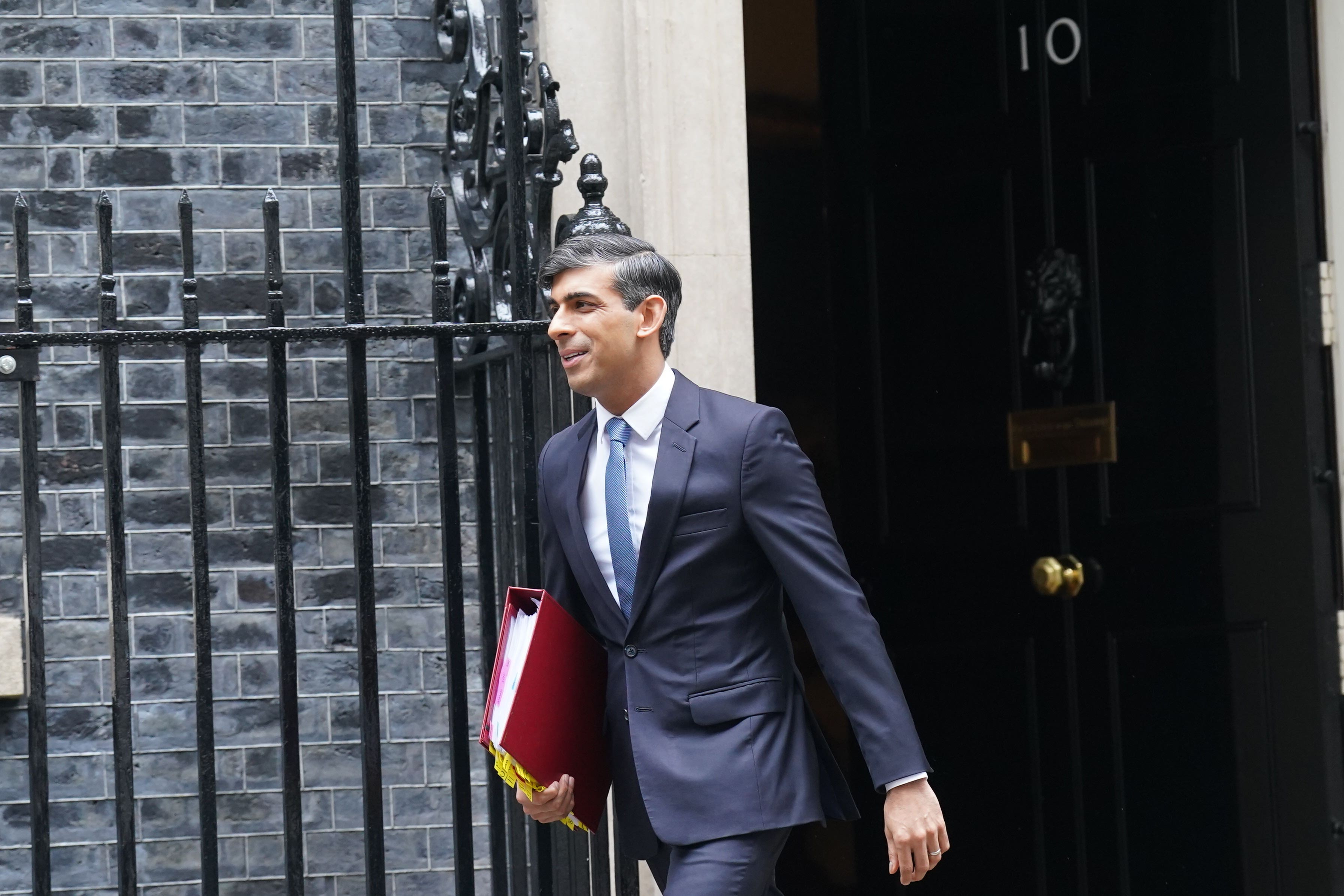Sunak gambles on summer election – why is he going earlier than many expected?
The Prime Minister defied growing expectations the election would be held in the autumn.

Your support helps us to tell the story
From reproductive rights to climate change to Big Tech, The Independent is on the ground when the story is developing. Whether it's investigating the financials of Elon Musk's pro-Trump PAC or producing our latest documentary, 'The A Word', which shines a light on the American women fighting for reproductive rights, we know how important it is to parse out the facts from the messaging.
At such a critical moment in US history, we need reporters on the ground. Your donation allows us to keep sending journalists to speak to both sides of the story.
The Independent is trusted by Americans across the entire political spectrum. And unlike many other quality news outlets, we choose not to lock Americans out of our reporting and analysis with paywalls. We believe quality journalism should be available to everyone, paid for by those who can afford it.
Your support makes all the difference.Rishi Sunak has pulled the trigger on a General Election campaign, taking a gamble by announcing a July 4 date while his party languishes in the polls.
The Prime Minister has long insisted the national vote would happen in the second half of this year, which many in Westminster thought to mean October or November.
But on Wednesday afternoon, the Tory leader stepped out on to a rainy Downing Street to call a surprise summer election.
There are several reasons he may have chosen to go earlier than many expected.
Wednesday brought some rare welcome news for the Prime Minister, as official figures showed inflation slowed to 2.3% in April, the lowest level in nearly three years.
Mr Sunak declared inflation is “back to normal” in a “major milestone” for the country.
It came after data earlier this month showed the economy grew by 0.6% over the first quarter, ending a technical recession recorded in the final half of last year.
The Prime Minister will be hoping that signs of a recovering economy will help him overturn Labour’s 20-point opinion poll lead.
At the same time, he may be sensing that the economic landscape is unlikely to improve significantly before the autumn.
Britons still feel worse off than before the pandemic, the Chancellor acknowledged earlier on Wednesday, with brighter economic statistics unlikely to feed through to them over the next few months.
One reason for delaying might have been to allow Jeremy Hunt to deliver another tax-cutting financial statement in the lead-up to the vote, but official figures revealed borrowing for April overshot forecasts, hitting £20.5 billion, suggesting he would have had limited scope for pre-election giveaways.
The Prime Minister may also be banking on deportation flights to Rwanda taking off over the coming weeks during the election campaign, which would allow him to claim a victory in his flagship asylum plan.
It may also allow him to avoid a likely spike in small boat arrivals across the English Channel, which tend to increase in the warmer months.
The number of migrants to have arrived in the UK across the Channel in 2024 is already approaching the 10,000 mark, imperilling Mr Sunak’s pledge to “stop the boats”.
NHS waiting lists also remain higher than they were when the Prime Minister vowed to cut them, and may not drastically fall before the autumn.
Meanwhile, questions have long swirled over Mr Sunak’s leadership, with rumblings of Tory rebels reaching fever pitch in anticipation of challenging May local elections for the party.
Although the local and mayoral polls did see a mauling for the Conservatives – who lost nearly 500 council seats, the West Midlands mayoral race and the Blackpool South by-election – calls for Mr Sunak to be replaced at the helm of the party appeared to fizzle out.
But he may have been keen to get ahead of any further plotting by calling a summer general election.
Mr Sunak may have also wanted to dodge any further defections, after he suffered two recent defections to Labour and one to Reform UK.
Most analysts expect the polls to narrow during the six-week election campaign.
However, it appears unlikely a July election will drastically move the dial on the Tories’ prospects.